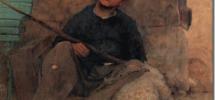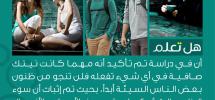SEEARAH OF THE PROPHET SAWS contd..... LET ME SEE MAX LIKES :)HOW MUCH WE LOVE OUR BELOVED PROPHET SAWS 13. Hijra to Abyssinia (Ethiopia) The Makkans were relentless in their persecution of the Muslims and in the persecution of our beloved Prophet Muhammad (peace be upon him). They left no stone unturned in slandering, defaming and injuring the Prophet (pbuh). They tried their best to harm him and to destroy his mission. Abu Lahab, their leader, encouraged others to carry out these evil actions and stood against the prophet (pbuh) throughout the prophet’s mission in Makkah. He was against Islam and did his best to eradicate it from Makkah. The slaves that had accepted Islam and the Muslims that were poor suffered the most at the hands of the Makkans. Many had been martyred whilst others were subject to different forms of abuse and mistreatment. Some of the Muslim’s lives became miserable and they suffered terribly but they continued to observe patience and follow Islam wholeheartedly. Nothing was going to cause them to turn their backs to the truth. After so much suffering at the hands of the Makkans, the prophet (pbuh) commanded a small group of Muslims to make the Hijra to a safe place in the country of Abyssinia. It was a Christian county, which was ruled by a just and fair king, whose title was Negus. They were sure to receive protection and peace there. The Muslims only wanted to get away from this persecution and to worship and live in peace. All the planning was kept secret because the Makkans kept a close eye on the activities of the Muslims. The group of Muslims, who were going to leave for Abyssinia, consisted of sixteen people, which included twelve men and four women. Uthman bin Affan was also part of this group along with his wife Ruqaiyah (the prophet's daughter). When the Makkans found out, they tried to chase the small group of Muslims who had left Makkah the night before. On arrival at the port of Shu’aibah, the Muslims had seen that a ship was ready to leave the port and they managed to get on it. The Makkans were too late and became very angry that these Muslims had managed to escape from their evil grasp. They remained more vigilant in the future. Their anger at the Muslims escaping was turned against the remaining Muslims and many hardships came upon the Muslims. The Makkans increased their barbaric treatment of the believers, especially the weak and the helpless Muslims. They were further enraged when they found out that that the escaped Muslims were getting well treated in Abyssinia and hadn’t been expelled as the Makkans had hoped. The Prophet (pbuh) commanded another group of Muslims to make Hijra to Abyssinia but this time the group was much larger consisting of one hundred and two (or so) Muslims. This time there were two additional factors the Muslims had to deal with. Firstly, the Makkans were watching the Muslims very carefully and they would notice if something unusual was happening. Secondly, this group was a lot bigger so it would be more difficult for them to move quickly from one place to another. However, by the will of Allah, the Muslims managed to escape from the watchful eyes of the Makkans and made it safely to Abyssinia. The Makkans were mad with anger and decided that they would send a small group of negotiators to bring back these Muslims. They would go to the Negus and explain to him that the Muslims had forsaken the religion of their forefathers. They would demand that the Muslims be returned to Arabia and the Makkans be allowed to deal with them. The Makkans sent two of their top people, Amr bin Al-as and Abdullah bin Abi Rabia, who took expensive gifts with them. They wanted to dazzle and bribe the Negus so that he would release these Muslims. The two Makkan envoys travelled to Abyssinia and spoke to the Negus. They explained that these Muslims had left the religion of their forefathers and they asked Negus to return them to the Makkans. The king summoned the Muslims to the court and asked them to explain the teachings of their religion The Muslims were not scared of anything, they had the truth and they would stand by the truth. Ja‘far bin Abi Talib stood up and explained to the Negus about the situation of the Arabs before the divine guidance came from Allah. He said that in the past, they had been acting out of ignorance by worshipping Idols and carrying out many bad actions. They had neglected their responsibilities to their fellow man, neighbour and orphans. They had complete forsaken justice, compassion and charity. They had forgotten all the good characteristics of a human being such as truth, honesty and piety. They had neglected all forms of justice and the strongest oppressed and ruled over the weak. Jafar then explained to the Negus about the Prophet Muhammad (pbuh) and his pure message which invited mankind to worship only Allah and to leave all forms of idol worship. The Prophet (PBUH) had encouraged them to always speak the truth; to be faithful to their trusts and promises; to be merciful and just in their dealings with others and to respect the rights of their fellow human beings. The Prophet (pbuh) had also forbade them to speak evil of women and ordered them to look after the welfare of the orphans. He further explained that the prophet (pbuh) had ordered them to keep away from all evil acts and instead offer prayers, give charity, and to observe fasting. Jafar told the Negus they had accepted this noble person as the Prophet of Allah and had followed his teachings. It was for this reason the Makkans had attacked and persecuted them and it was for this reason the Muslims had left Makkah. The Negus was satisfied with their answers. The two envoys decided on a new plan. They went to the Negus saying that Muslims spoke ill of Jesus. The Negus called the Muslims and questioned them regarding what their religion said about Jesus. Jafar recited some verses of the Qu'ran from Surah Maryam, which teaches us about the miraculous birth of Jesus and the status of Jesus in Islam. The Negus was again impressed and was moved to tears that rolled down his cheeks. He knew in his heart that this was indeed the truth and was moved by the beautiful verses of the Qu'ran The Negus exclaimed: "It seems as if these words and those which were revealed to Jesus are the rays of light which have radiated from the same source." He then turned to the two envoys from Makkah and told them to leave; the Muslims could stay in Abyssinia as long as they wished. The gifts were returned to the two envoys and they were told to return to Makkah. The Makkans were shocked at the developments in Abyssinia – they had expected their envoys to be more successful but instead the Negus became more tolerant and respectful to the Muslims. There are some sources that say that Negus actually accepted Islam. History tell us that he kept his conversion to Islam a secret because some of his bishops would oppose him. The Makkans had seen so much unfold before their very eyes but still many of them remained stubbornly against Islam. They made attempts to pressurize Abu Talib, the Prophet's uncle, by asking him to withdraw his support for Muhammad (pbuh). Abu Talib refused their requests and continued to support Muhammad (pbuh), even though Abu Talib did not accept Islam. Abu Talib loved and respected Muhammad (pbuh) very much and never withdrew his support for Muhammad (pbuh) during his lifetime. There had been numerous incidences where Abu Lahab and the Makkans had mocked and spoke ill of the prophet (pbuh). There are still more incidences where Abu Lahab himself created a nuisance to the prophet (pbuh). These shameful acts include throwing things at the prophet (pbuh) when he was praying. They would also throw rubbish inside the food they were preparing or had already prepared. However, Muhammad (pbuh) did not resort to violence or acted in the same disrespectful way. One such incident that took place was when the Prophet (pbuh) was praying at the Ka'bah. A group of Makkans got together and put the intestines of a camel on the Prophet’s back when he was doing sajdah. The prophet (pbuh) could not move and remained like this whilst the Makkans celebrated and laughed at this incident. Fatima, the beloved daughter of our Prophet (pbuh) came and removed it from his back. The prophet (pbuh) then made a dua against these seven people, saying that may Allah punish them for this evil action. In the battle of Badr, all seven of them were killed in the battlefield and their bodies were seen after the battle. In another incident, Abu Lahab tried to injure the prophet (pbuh) in the sanctuary of the Ka'bah. Abu Lahab swore that he would rub the prophet’s face in the dust when the prophet (pbuh) came to pray. He intended to put his foot on the neck of our beloved prophet (pbuh) and force it into the sand as he performed the sajdah. Just then the prophet (pbuh) came into the sanctuary and began to pray. With his friends watching Abu Lahab went forward to attack the prophet (pbuh). Suddenly Abu Lahab turned back, as if running from something. His colleagues were puzzled and asked him what happened. Abu Lahab said that there was a ditch of fire between the prophet (pbuh) and him and there was something after him so he ran away! A third incident worth mentioning is when the prophet (pbuh) was at the sanctuary. It was in the fifth year of prophethood and the Muslims at this point were suffering many hardships. The Makkans were getting bolder with their attacks against the Muslims. This particular attack was by Abu Jahl who hurled abuse at the prophet (pbuh) and then attacked him with a stone. The prophet (pbuh) did not retaliate against him and instead returned from the sanctuary. However, much to the dismay of the Makkans, they paid very heavily for this assault upon the Prophet (pbuh). That’s for next week Inshallah.
2014-04-18 03:30:36
SEEARAH OF
sign in to comment
Be the first to comment





